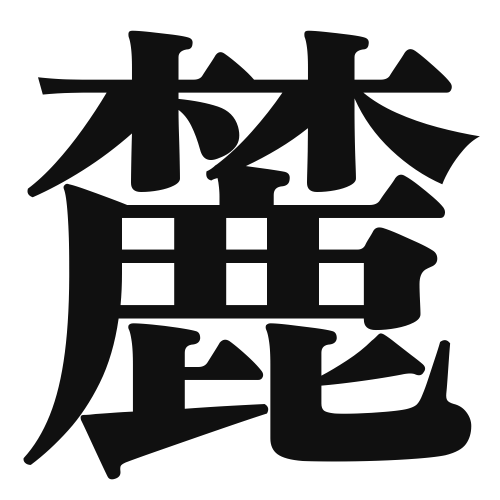1. Overview of Meaning
The kanji “麓” (roku) refers to the base or foot of a mountain. It signifies the lower part of a mountain where it meets the surrounding land, often associated with the idea of a natural landscape.
2. Formation and Radical
Formation of the Kanji: The kanji “麓” is a compound character that combines elements to convey its meaning. It consists of the radical “鹿” (deer) and the phonetic component “各” (kaku), which together suggest a connection to nature and the environment.
Radical: The radical of “麓” is “鹿,” which means “deer.” This radical often relates to animals and nature, reinforcing the connection to mountainous regions.
3. Examples of Usage
Common Words and Phrases: “麓” is often used in words like “山麓” (sanroku), meaning “mountain foothill.”
Example Sentence in Daily Conversation: “私たちは山の麓でピクニックをしました。” (Watashitachi wa yama no roku de pikunikku o shimashita.) – “We had a picnic at the foot of the mountain.”
4. Synonyms and Antonyms
Similar Kanji: A similar kanji is “峰” (mine), which means “peak” or “summit.” While “麓” refers to the base of the mountain, “峰” indicates the highest point.
Antonym: The antonym of “麓” is “頂” (itadaki), meaning “top” or “summit,” representing the highest part of a mountain.
5. Cultural and Historical Background
Connection to Japanese Culture: In Japan, mountains hold significant cultural importance, often associated with spirituality and nature. The concept of “麓” reflects the beauty of the natural landscape and the harmony between humans and nature.
Proverbs and Idioms: One common saying is “山の麓に住む” (yama no roku ni sumu), which means “to live at the foot of the mountain,” symbolizing a peaceful and harmonious life close to nature.
